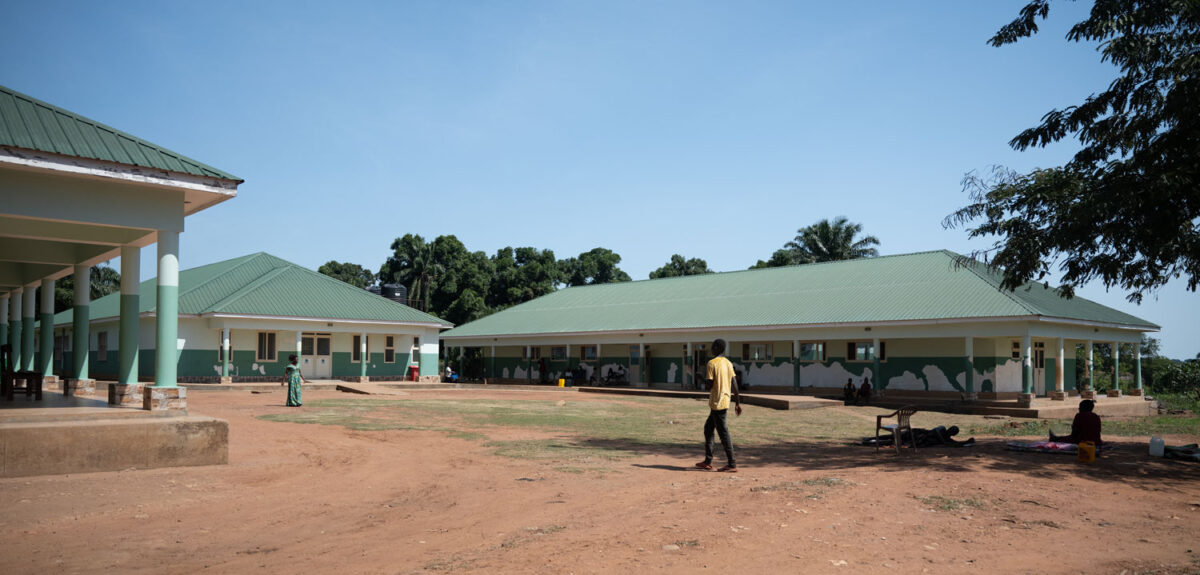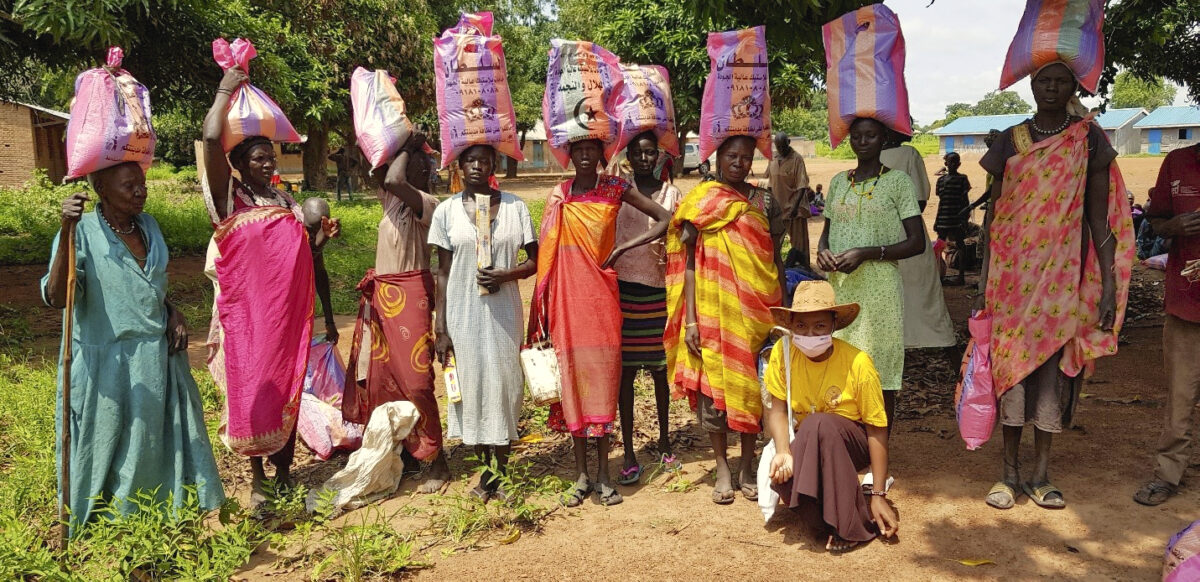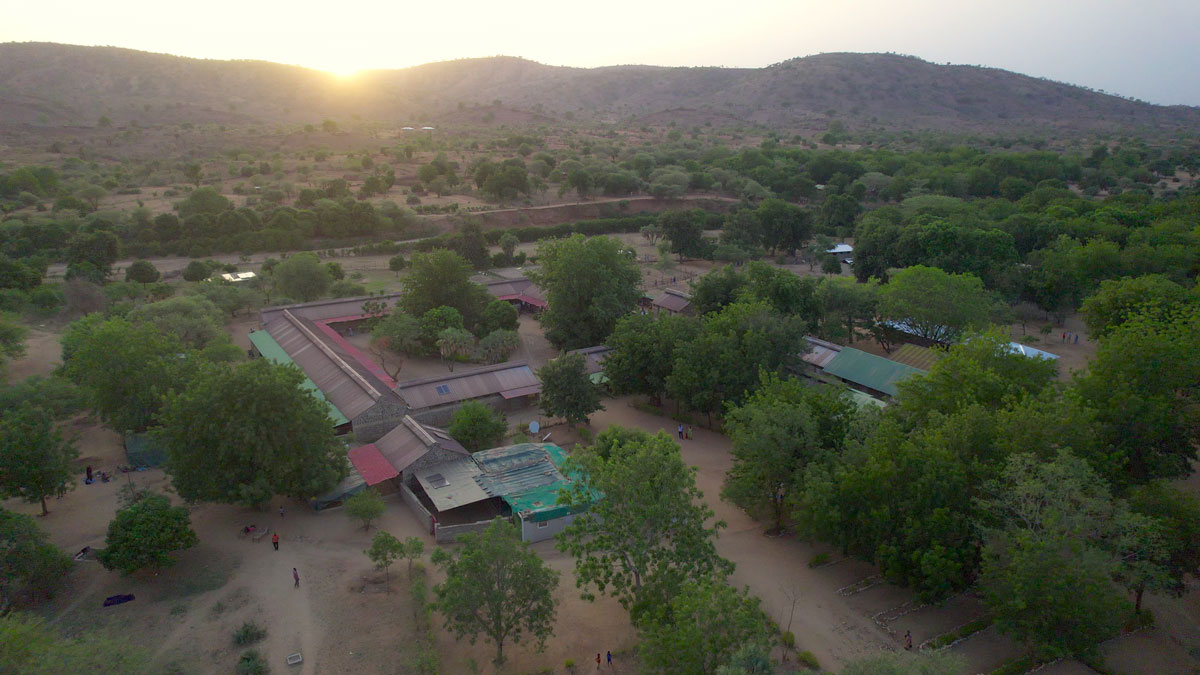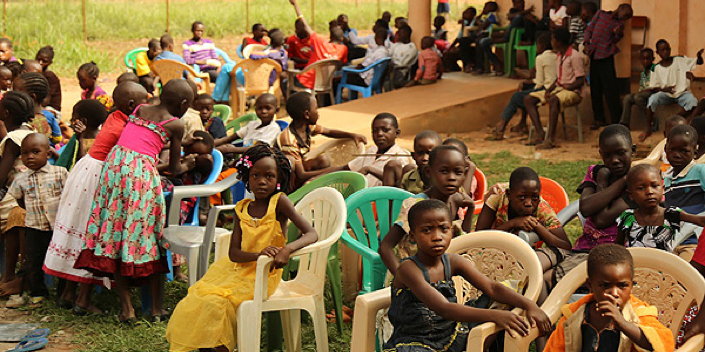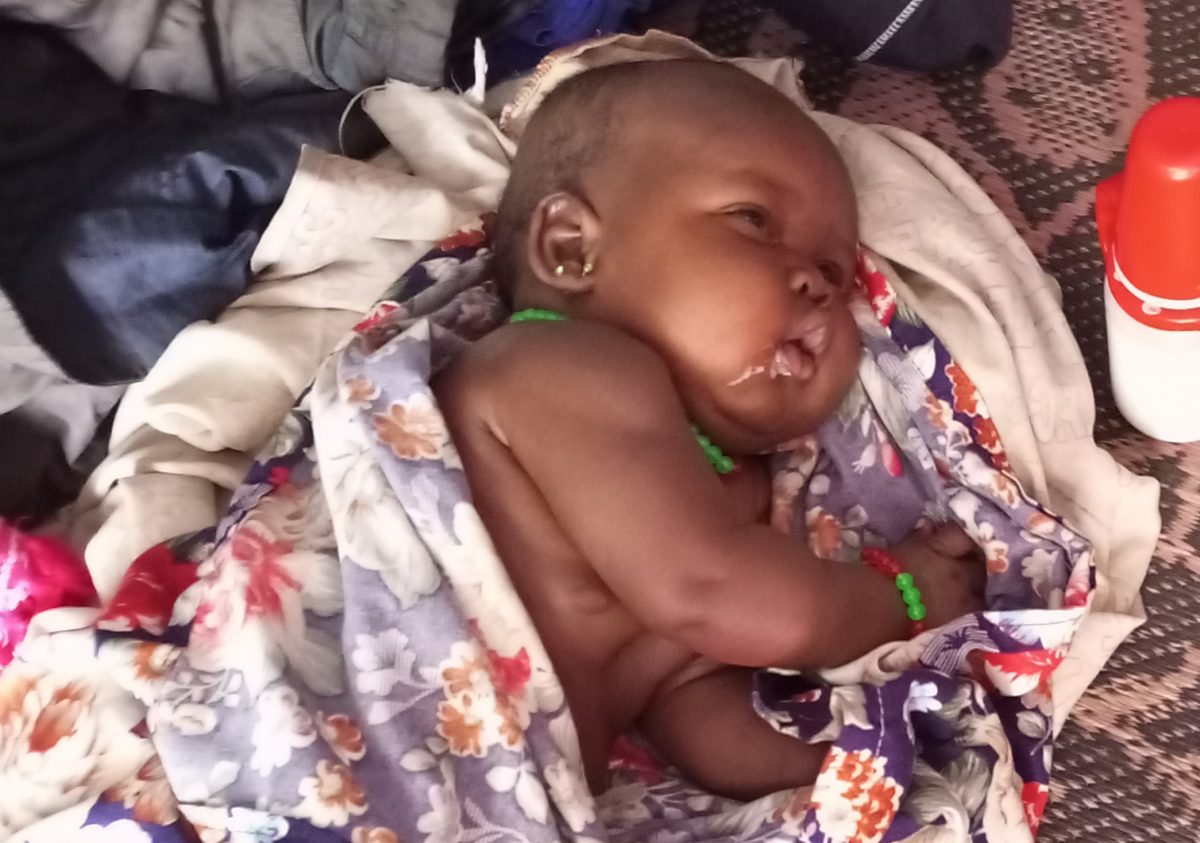
A Cry in the Night
As told by missionary nurse, Noeleen Loughran, our partner on the ground in Rumbek.
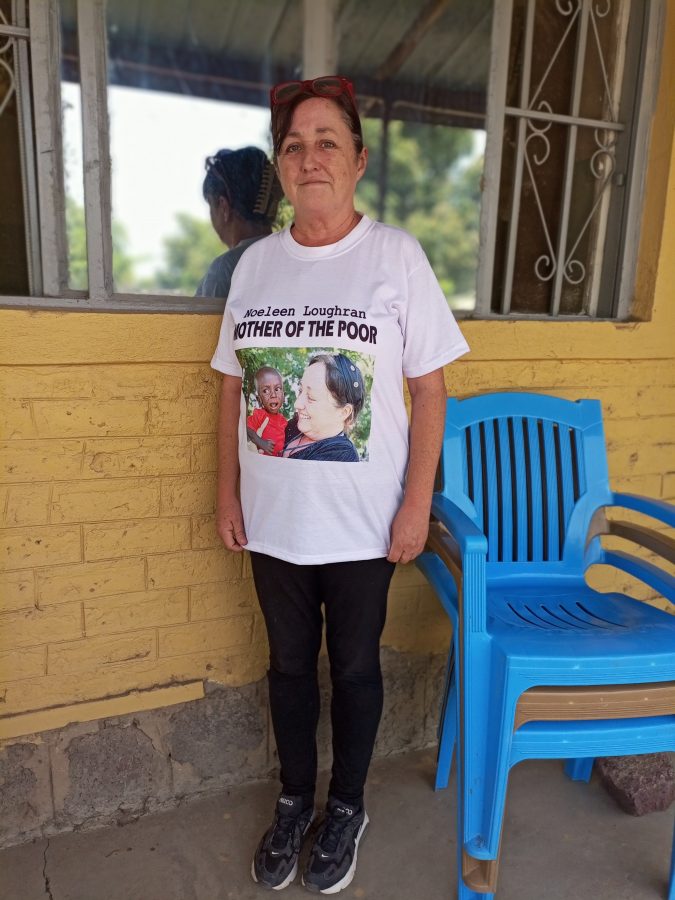
Just around Christmas time, as I was sitting outside the Parish House as usual here at night, I found myself listening to the sound of a baby’s cry. It was a lingering cry, and it stood out from the usual cries one hears from babies in the distance. It bothered me, but being late at night there wasn’t much I could do. The following night, the cry pierced my head again, and so on and so on every night. I knew it was the same baby’s cry.
Every night I complained to the church Fathers, “Where is that child crying from?” Everywhere I went I could hear the cry. It began tormenting me with frustration as to where the child was and how I couldn’t do something. We made inquiries to no avail – no one knew the whereabouts of the child. I felt like I was the only one who could hear the painful sound, and no one else seemed overly concerned, as it is quite regular to hear children crying here. There were times I felt God was purposely making me hear it more than anyone else.
In my frustration one night, I could stand it no longer and I got out of bed just after midnight. I awoke the guard at the gate and told him to open the gate. Against his advice, I proceeded with a flashlight toward the sound, knowing very well I could get bitten by the snakes that come out at night. But with trust in God I proceeded. I knew a girl in this area called Lucky, and I woke her up to ask her if she knew where the child was. She knew. At last I had found her.
Under the stars lay a young woman with a tearful baby wrapped in her arms – a very frail young lady. Beside her lay two more children sleeping, and beside them lay an elderly woman with her legs tied together and her arms tied together, chained to a pole. They had no shelter of any kind, no blanket, and only a piece of plastic over four sticks to cover their heads.
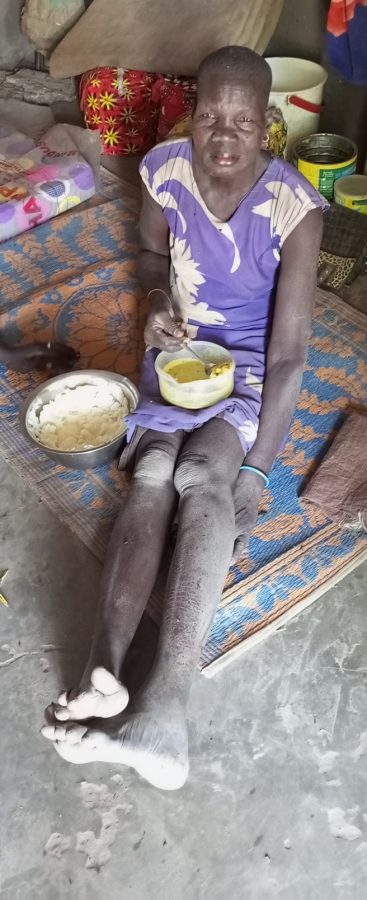
The old lady gave me a beautiful smile. I later learned that she was an elder in the church from the town of Yirol, some 3 hour’s journey by car, and they had walked to Rumbek looking for medical help. Due to the war, the elderly lady had – as many do here – temporarily lost her sanity from the trauma, and was tied up for her own safety.
The baby was so hungry and the mother could not produce enough milk to feed her. Being late, both Lucky and I ran back to the parish house, and gathered up anything I could find in terms of food. We ran back to them with a few slices of bread, a box of porridge, and a half of a yogurt for the baby. That would see them through until morning, I thought.
The next day I bought everything they needed in terms of food, and powdered baby milk for six months. Now there was the issue of what to do for the elderly lady. At that time, I had a doctor come from Uganda to work with trauma victims for one week, who was a psychiatrist and medical doctor. When he came with me to see the woman, he wept. He said it was so sad to see the pain in her eyes, and yet a little help can change all that. And yet a little help can change all that. We bought her some needed medicine for her trauma, and now she sits comfortably smiling, no longer needing to be tied up or of any danger to herself. I have not yet found somewhere for them to live, but I am working on it.
There is no longer the cry of a baby each night. I have comfort and peace now in my heart knowing she is ok. What I have learned in this experience is that God makes us hear things that others may not hear. He makes us feel things others may not feel. And he gives us the strength and courage to do something about it. We sometimes think God is far away and that we can’t hear him. But in truth, his voice comes to us in many ways, and we can see him in the places we least expect. The infant – a little girl – did not have a name. And as she was born at Christmas, we have called her “Iosa,” the Irish name for Jesus.
-Blessings, Noeleen
Your support makes these life changing stories possible. Would you like to pray for this work? Sign up for our email prayer group. You’ll receive weekly emails sharing important needs to pray for. Join a faith community around the globe praying to bring hope and help to suffering people in this forgotten part of the world. Click here to find out more.
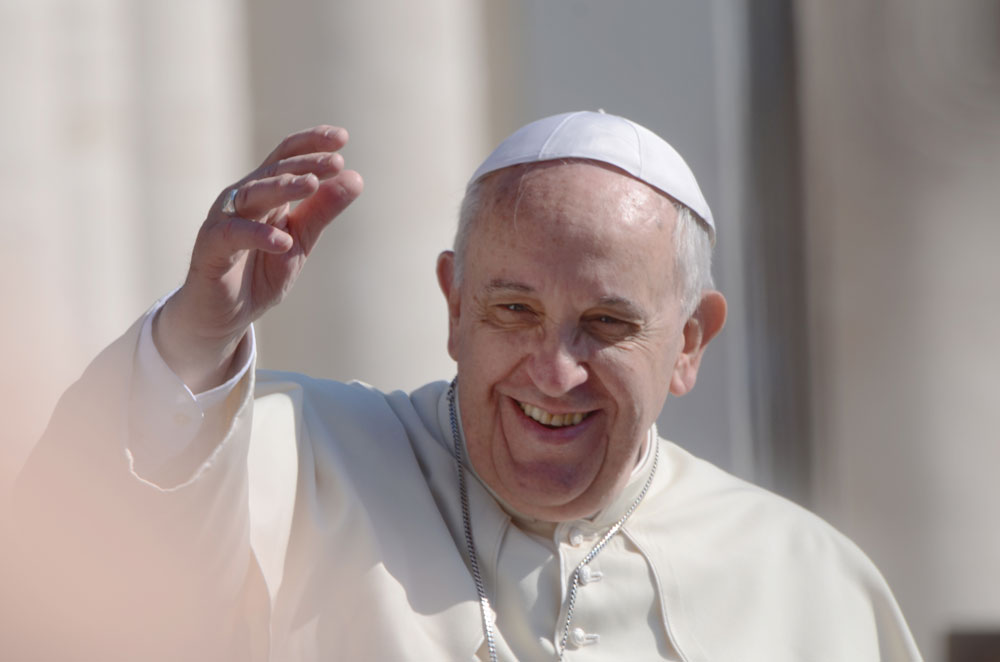
Pope Francis Set to Visit South Sudan in July
In a historic move, Pope Francis announced plans to visit South Sudan in a joint trip to include the Democratic Republic of the Congo, from July 2-7 of this year.
Other dignitaries expected to accompany the Pope include Archbishop of Canterbury, Justin Welby, and the moderator of the Church of Scotland, Jim Wallace.
Pope Francis will begin his visit in the Congolese cities of Kinshasa and Goma July 2-5, then on to South Sudan’s capital city of Juba, July 5-7.
It will be the first visit by a pope to the nation of South Sudan since the country declared its sovereignty in 2011. The trip is made “at the invitation of the respective heads of state and bishops,” according to the press office of the Holy See.
Archbishop Paul Gallagher, the Vatican’s foreign minister, traveled to Juba in December in anticipation of such a trip, and confirmed the Pope’s intentions to visit South Sudan in the near future.
The Pope has shown great interest in promoting peace within South Sudan, a nation that is 37% Catholic with over 4 million followers. In 2019, Pope Francis met with the country’s president and rebel leadership at the Vatican, urging a resolution to prevent civil war and secure a stable peace.
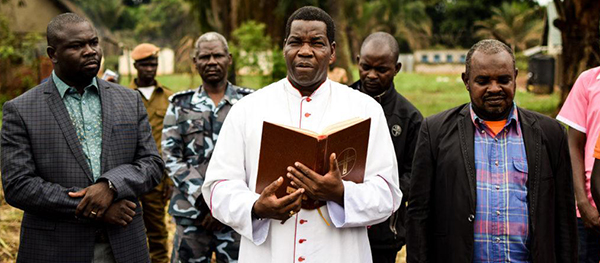
Bishop Calls for Continued Faith to be Ambassadors of Peace
Bishop Eduardo Hiiboro Kussala of the Tombura Yambio Diocese in South Sudan, urged his people last month to stand firm in their faith and pursue peace always, as a foundation to achieve a successful path forward individually and as a nation.
“Our diocese is also known as a region of peace,” said the bishop. “We have conflicts, but the good news is that people turn to God and urge him to take control and address their problems. We leave all difficulties in God’s hands.”
Bishop Kussala reminded that it isn’t sufficient to call oneself a follower of God, but people must change their hearts and minds to act accordingly. “It is not enough to call ourselves Christians or disciples of God or children of God. We must work within ourselves, within our hearts.” He continued, “Only if we continue to act as believers will we be able to solve our problems.”

The bishop expressed his gratitude to God for progress in his diocese. “The Church is moving forward,” he said. “We are grateful to God who, despite the countless challenges in the country, gives us the strength to resist.”
He noted there is a strong interest in religious life among the youth in his diocese, and an increase in the number of young people who want to pursue a vocation in the Church, calling it “a very large and fertile ground.”
Bishop Kussala reiterated how his people’s strength must always derive from faith. “Our true pride and strength is faith,” he shared. “My diocese is a diocese of faith, a people who identify with God, and this gives us the motivation to continue on this path.”
Bishop Kussala is well known for his commitment to pursuing peace talks and campaigning for peace among his nation’s people, tribes, youth, and heads of state. He exhorted, “We must never stop being ambassadors of peace.”
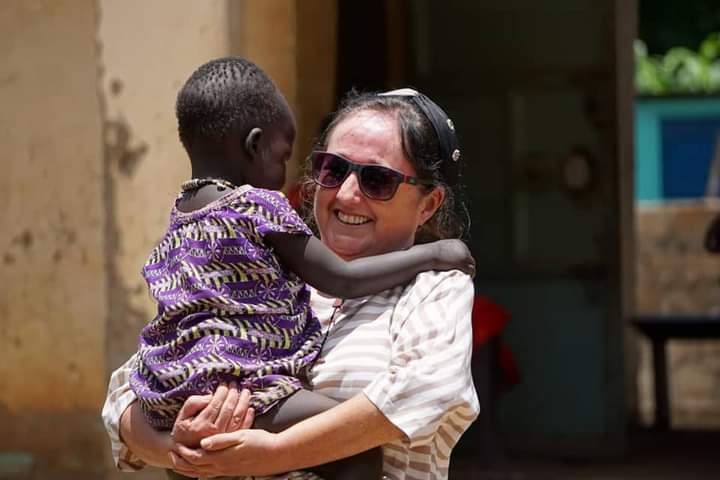
Baby Grace
Sudan Relief Fund is dedicated to changing lives, relieving suffering, and bringing hope to struggling people.
Baby Grace is an 18 month-old living in the Leper Colony of Maloh. Her father died before she was born, and her mother died when she was six months old. After that, Baby Grace’s aunt, who is herself stricken with leprosy, was trying to take care of her.
But to say there was little food was generous. Adults in the community were eating leaves to avoid starvation. The complete lack of medical help meant the onslaught of disease in her family would continue until the inevitable happened. The future held nothing hopeful for this baby girl.
That was before our partner and missionary nurse, Noeleen Loughran, found this community and Sudan Relief Fund stepped in to help. Today there is clean water, new housing, new clothing, and sufficient food. There are crops growing in the fields. And most importantly, a new health clinic onsite where people can get treatment for this curable disease. And Baby Grace can look forward to a life marked with hope instead of tragedy.
Baby Grace is one of the many here who have been saved by the intervention of Sudan Relief Fund. Says Noeleen, “Baby Grace is now supported through food and healthcare and continues to grow, thanks to all of our donors.”
Noeleen continued, “Baby Grace always shows her great love for me with hugs and smiles. I am greeted every day by gestures of love from Grace, as well as by the many children of this colony.”
Thank you for helping transform lives like that of Baby Grace and countless others. Your support is what makes stories of lives saved like this possible.
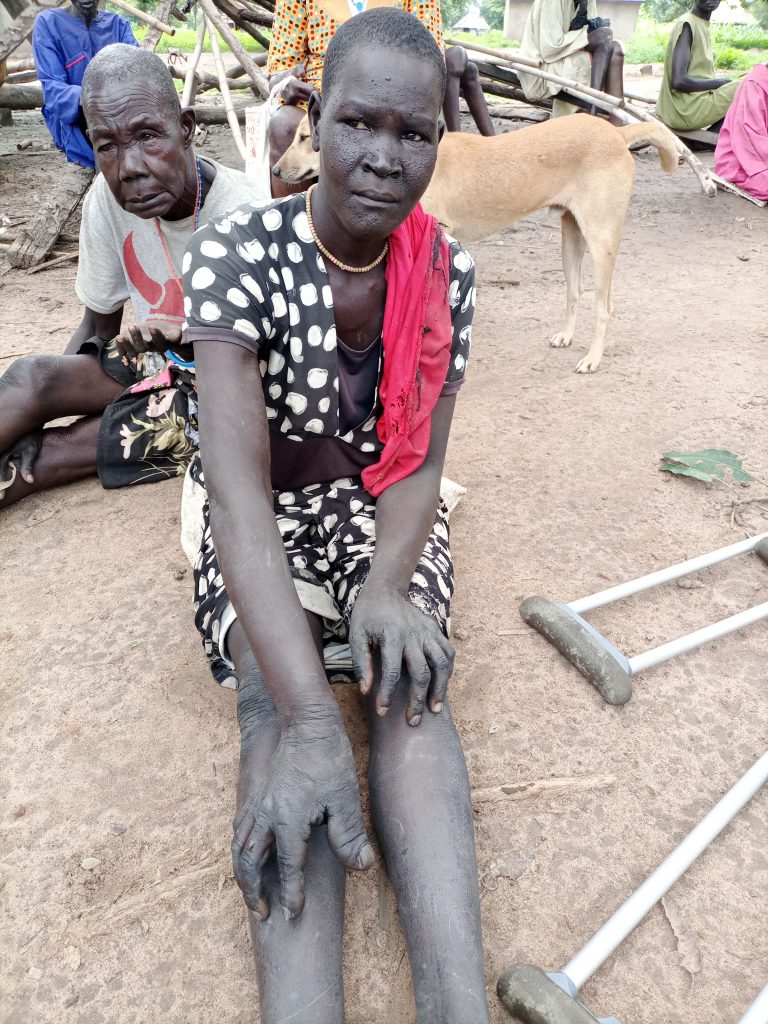
Would you like to pray for this work? Sign up for our email prayer group. You’ll receive weekly emails sharing important needs to pray for. Join a faith community around the globe praying to bring hope and help to suffering people in a forgotten part of the world. Click here to find out more.
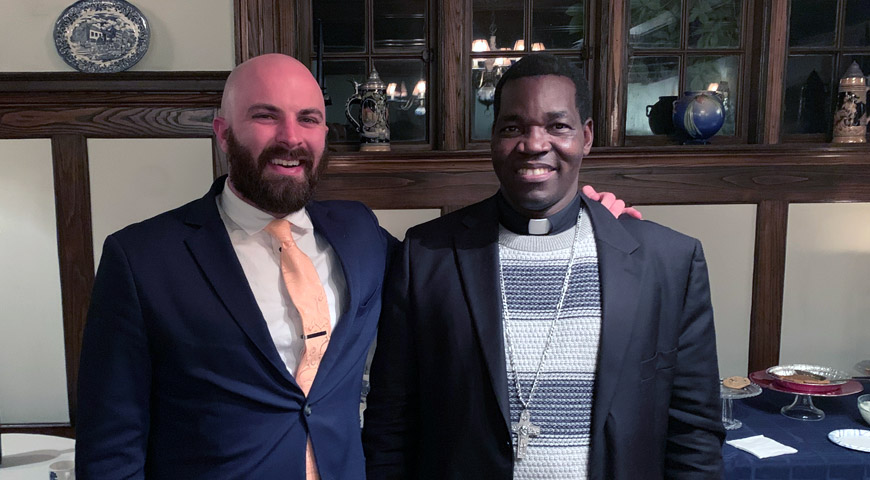
Sudan Relief Fund Announces Changes to Our Team
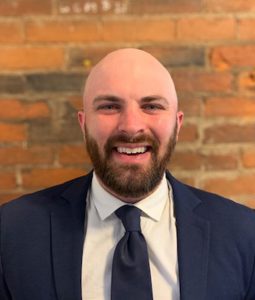
Sudan Relief Fund would like to take this opportunity to express our deep appreciation to Brendan Gotta, who has served with us for the past two and a half years as Director of Stewardship. During his time with our organization, Brendan has been an integral part of our team, meeting with donors and sharing the plight of the people of Sudan and South Sudan to bring help and hope into their lives. We are grateful for his dedication, commitment, and the time he spent striving to pursue our mission.
We extend our best wishes to Brendan as he enters a new chapter, looks forward to getting married, and transitions from our organization to pursue new and different opportunities to serve God’s people. We are confident Brendan will continue to bless lives in his career path.
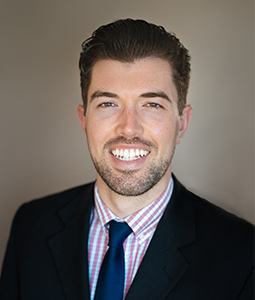
We’re pleased to introduce you to Matt Smith, who will serve as Vice President of Development for Sudan Relief Fund. Matt is well acquainted with Sudan Relief Fund, having spent years as a fundraising consultant for many non-profit organizations. Matt will serve as an advocate for the vision and mission of Sudan Relief Fund, overseeing fundraising strategy, and working closely with leadership to cultivate domestic and international partnerships.
Matt has chosen to spend his entire professional career in the non-profit sector out of a strong desire to use his gifts to “help the least of these.” We welcome the talent and commitment he will bring to our organization.
Please reach out to Matt Smith at msmith@sudanreliefund.com, for questions regarding your donations or ways to support the work of Sudan Relief Fund. Thank you for partnering with us to save lives in South Sudan.

2022 At Risk to Become Worst Food Insecurity Year in South Sudan
2021 became the worst food insecurity year for South Sudan since the budding nation’s ten-year independence. Devastating floods worsened already dismal economic and agricultural conditions that have plagued the country through years of civil unrest and lack of government aid.
Record-level flooding in 2021 – the worst in 60 years – killed livestock in the hundreds of thousands and buried farmlands and crops under several feet of water. Impassable roads impeded producers from bringing any available commodities to market and disrupted efforts by people to reach them.
Massive displacement of flood victims, now left homeless, have added to the mounting crisis and increasing food shortage.
“We’re eating leaves and look like skeletons,” one 60-year-old man told the AP. Displaced families in another district reported that ground-up water lilies were their only daily meal.
“No one’s looking out for the people,” said Byinj Erngst, who is the health minister in the Upper Nile state.
Preliminary reports by aid groups show nearly 8.5 million people of the country’s 12 million residents will face severe hunger this year, an 8% increase over last year’s already calamitous figure. Adding to the problem is the ongoing conflict between rebel militias and government forces in South Sudan’s southwestern region, known as the country’s breadbasket.
“If this country was really at peace, there wouldn’t be hunger like there is now,” said a 36-year-old mother from the hard hit Jonglei state, who waits for assistance at a hospital with her malnourished one-year-old daughter.
Her sentiments echo nationwide frustrations by citizens who have continually suffered the fallout of unresolved turmoil and breached peace agreements within the nation’s divided government. Meanwhile, health workers in northern Malakal report the number of malnourished children coming to their health center has more than doubled in the past twelve months.
In visits to three South Sudanese states in December, civilians and government officials shared their concerns to the AP that people are beginning to die of starvation. In the hardest hit area of Fangak County, aid representatives estimate some 30,000 people remain in a state of famine. Read more at AP News.
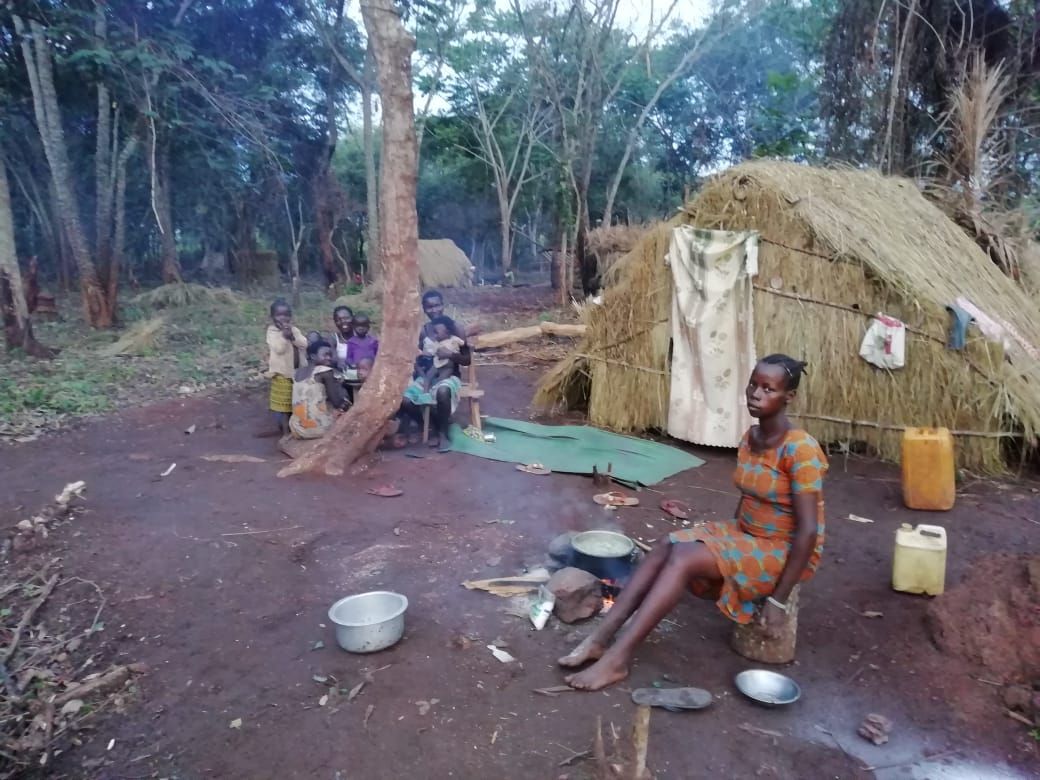
Children Return to St. Bakhita’s Orphanage Following Stay in Refugee Camp
Challenges continue for Sister Bianca Bii and the children of St. Bakhita’s Orphanage. But by the grace of God and goodness of supporters, they are faring with conditions and adjusting to circumstances as needed. Throughout their struggles, Sister Bianca has been stalwart and faithful to stay by the children’s side.
When rebel forces unexpectedly tore through Tombura Yambio in September, Sister Bianca and the children fled the orphanage grounds to a refugee camp that was spontaneously set up for displaced people escaping the violence. Sister Bianca has been caring for the children there ever since.
As the security situation became relatively calm, and the sheer number of refugees at the camp grew overwhelming, Sister Bianca recently made the decision to move the children back to the orphanage, where they are currently living. When they arrived, they found the structure intact, but rebels had vandalized some of the facilities, including the batteries and the clean water pump.
Sister Bianca and the children presently have about one month’s worth of food and supplies. These are stretched thin, as she is also caring for elderly men and women who were left behind during the initial turmoil and came to the orphanage for refuge. The orphanage’s volunteers and caretakers also scattered at the onset of the violence. Since then, Sister Bianca has single handedly taken care of all the children along with the elderly who came to her for help.

We are sending a food delivery to St. Bakhita’s this week by plane. But the children still lack clean water, and they don’t go to the river as it is too far and the trip too risky. Their other most pressing needs include additional food supplies, clothing for the children, and medicines for the children.
We are grateful for your ongoing prayers for Sister Bianca and all those in her care. Your support continues to be a crucial component in their well-being and cannot be underestimated. We thank you for standing by her side and standing with these children. It is accurate to say they would not be coming through these crises without you.
We will continue to share updates with you and news of their progress. Thank you again for being the hand of help reaching out to St. Bakhita’s Orphanage and the children whose lives you are blessing.
Sponsor the orphanage through monthly giving
I want to be a sponsor and support St. Bakhita’s Orphanage monthly.
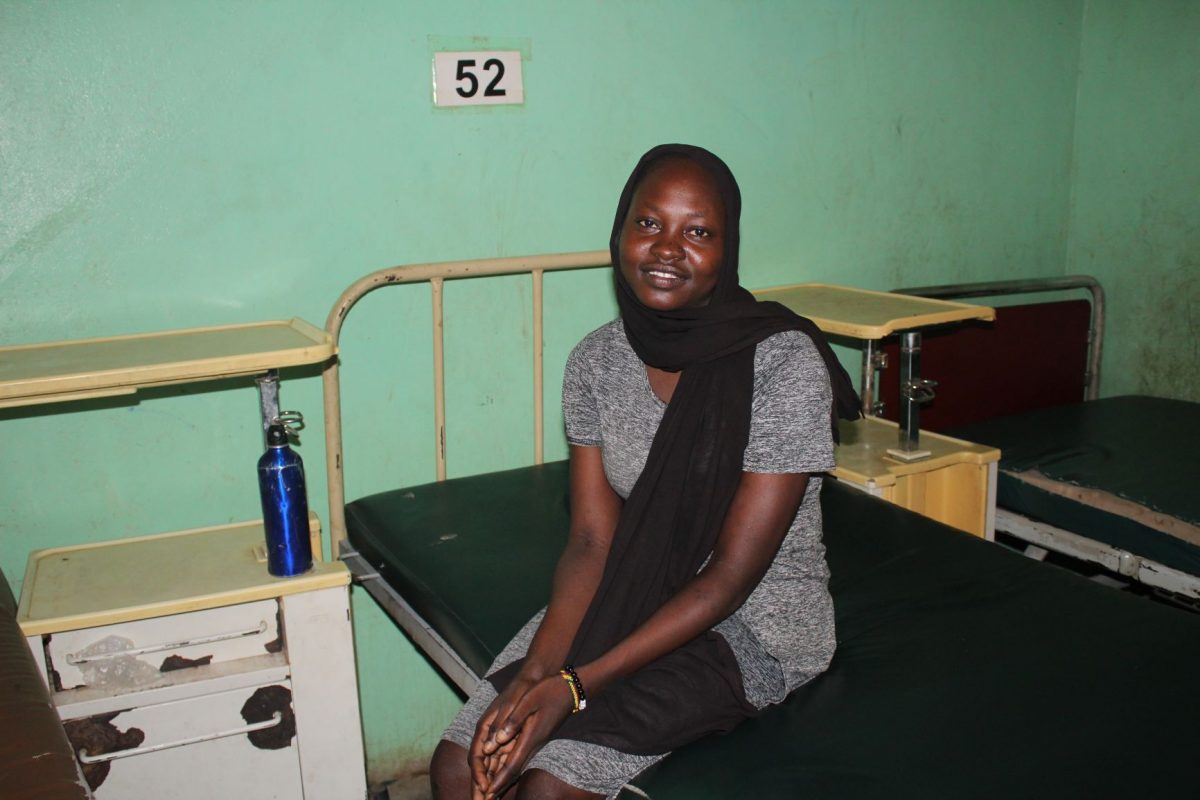
Hanan
Nearly Comatose Young Woman Makes it to Medical Help Just in Time
Each person who helps support our work through donations, prayers, or volunteering on the ground is a hero in their own right. Just ask Hanan, a 20-year-old woman who wouldn’t be here to share her story without your support.
“Dr. Tom, plus his team and the generous donors who are behind the scenes, are our heroes,” she proclaimed, as Hanan recounted the story of the timely medical intervention that spared her young life.
Hanan is a high school student from Sarbule, who began to suffer from upper back pain a year ago. She visited clinics in the Kakuma Refugee Camp several times. Unfortunately, nothing helped and her pain continued to worsen.
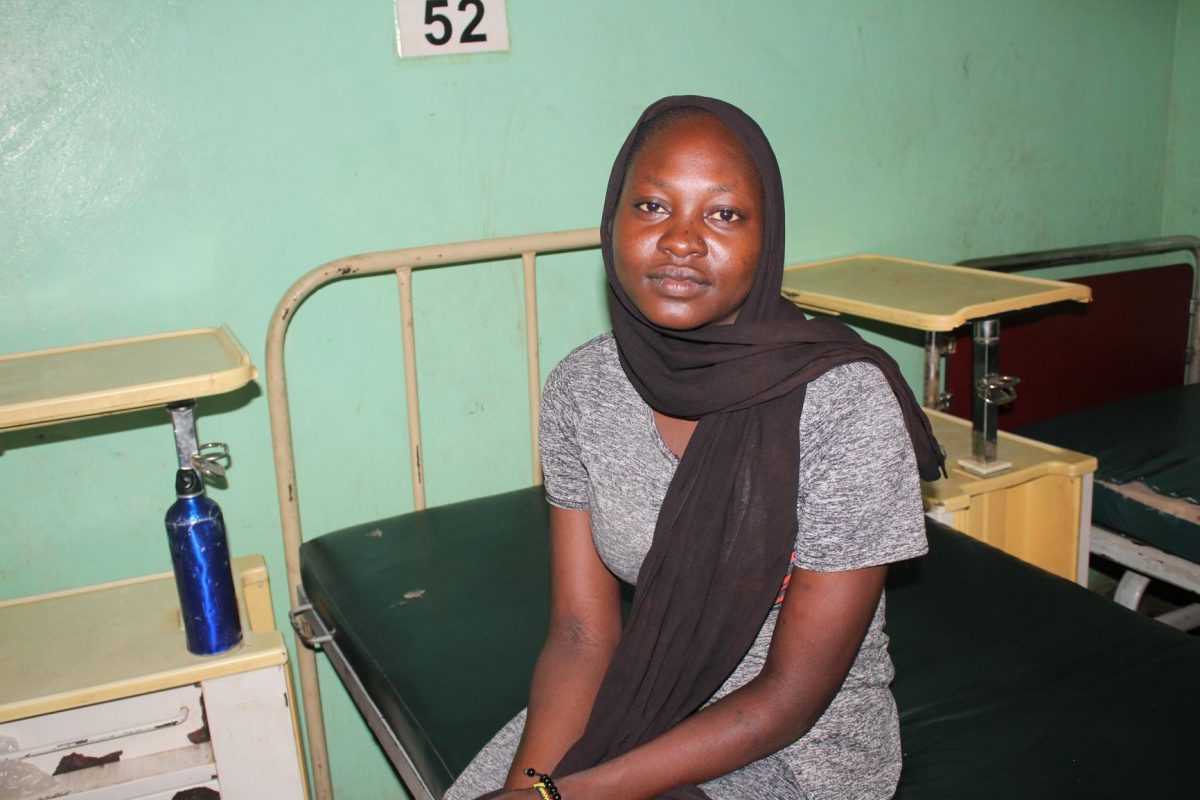
Hanan’s older brother was able to take her on the long trip to Mother of Mercy Hospital. There, Hanan was seen by Dr. Tom and his staff. She was admitted immediately and underwent a series of tests. Hanan was suffering from such severe diabetes she had almost fallen into a coma. Diabetes mellitus, her diagnosis, can cause heart attack, heart failure, stroke, kidney failure, and coma. Without treatment it can become fatal.
Hanan began receiving a series of injections to reduce her high blood sugar. Now, Hanan is stable and looking forward to returning to school and her life as a young adult. “I am really happy,” she reports. “The back pain has been reduced greatly and I am generally much better.” She spoke of the heroes who are the medical team and supporters who make their work possible, as she expressed, “May God bless the work of your hands.”
Mother of Mercy Hospital in the remote Nuba Mountains is the only facility of its kind for many hours in each direction, serving a population of over a million people. Your help makes lives saved stories like this possible.
Would you like to pray for us? Lifting Up South Sudan is a group of people helping transform lives in South Sudan through the power of prayer. You’ll receive a new prayer request weekly by email. You’ll be part of a vital team praying to bring light and hope to this despondent part of the world. To learn more or sign up to receive prayer requests, go here.
SRF 2022 1ST Quarter Newsletter
SRF 2021 2ND NewsletterPRAYER PARTNER
Will you help us Lift Up South Sudan in prayer?
Learn More about being a Prayer Partner
